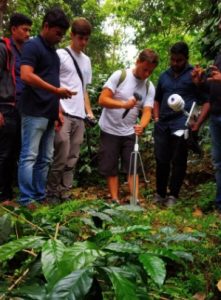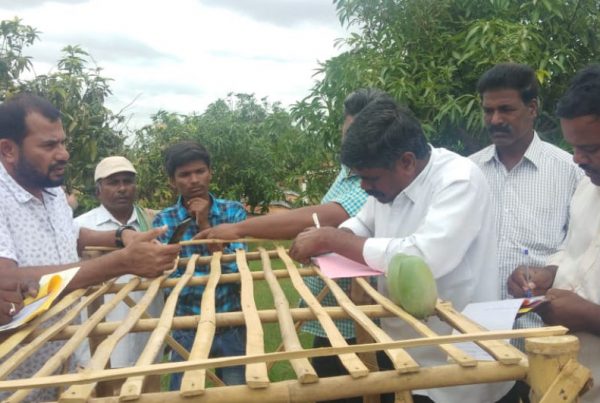 Climate change is a fundamental threat to many agriculture regions across Asia Pacific. Small Producer Organizations remain particularly vulnerable with climate change posing serious threat to their livelihoods. Many countries in the region are experiencing frequent natural calamities – intense flooding, droughts, storms, etc. Under developed and developing countries in Asia and Pacific are particularly vulnerable as their economies are substantially dependent on agriculture and related businesses. Globally, the financing needs for climate change adaptation in developing countries to 2050 are estimated at $100 billion annually.
Climate change is a fundamental threat to many agriculture regions across Asia Pacific. Small Producer Organizations remain particularly vulnerable with climate change posing serious threat to their livelihoods. Many countries in the region are experiencing frequent natural calamities – intense flooding, droughts, storms, etc. Under developed and developing countries in Asia and Pacific are particularly vulnerable as their economies are substantially dependent on agriculture and related businesses. Globally, the financing needs for climate change adaptation in developing countries to 2050 are estimated at $100 billion annually.
Fairtrade Network of Asia and Pacific Producers (NAPP) with more than 270 producer organizations, geographically spread across Asia and Pacific regions, has therefore rolled out an innovative new project to support farmers in adapting to climate change starting with the launch of ‘Climate Academy’ in 4 countries (India, Indonesia, Laos and Indonesia) with over 12 Producer Organizations.

The ‘Climate Adaptation Project’ aims to increase the resilience and adaptive capacity of small producer organizations through trainings and subsequent application of insights, skills and techniques in the farm. The resilience is built through the development of cutting-edge management practices at a community and institutional level. The same is undertaken with the expertise of a UK Based social enterprise ‘Climate Edge’ which specialises in gathering relevant farm specific climate & production data and data analytics.
On 27th Nov 2018 the NAPP Climate School was officially launched with the installation of 05 weather stations in 05 Fairtrade Producer Organizations along with a workshop on technical session by the Climate Edge consultants on how to gauge climate change.
The Project will have three phases

1st Phase: The first phase will involve installation of ‘Weather Station’ installation and ‘Monitoring’ across Vietnam, Indonesia, India and Laos in over 12 Producer Organizations. The project will gradually scale up to other countries in the coming years.
The weather station allows relevant climatic data to be collected on farms to detect threats and to guide in the precise use of inputs and irrigation method
A mobile enabled app allows NAPP to monitor vital data, in real time, from all of the farms to be instantly viewed and analysed from anywhere in the world. It enables key data to be collected on farms (product variety, soil type etc) thereby giving cooperatives a crucial overview of their farms along with expert guidance and advice.
2nd Phase: It will include setting up of ‘Farmer Field school/Demonstration’ plots in SPOs where the weather stations are installed in order to showcase climate adaptation technologies.
3rd Phase: The third phase will include setting up a ‘Climate Portal’- a knowledge sharing platform for all the Fairtrade producers based on the entire research and findings



